The media pounced on the ‘Elon Musk’ biography. It was all part of the plan
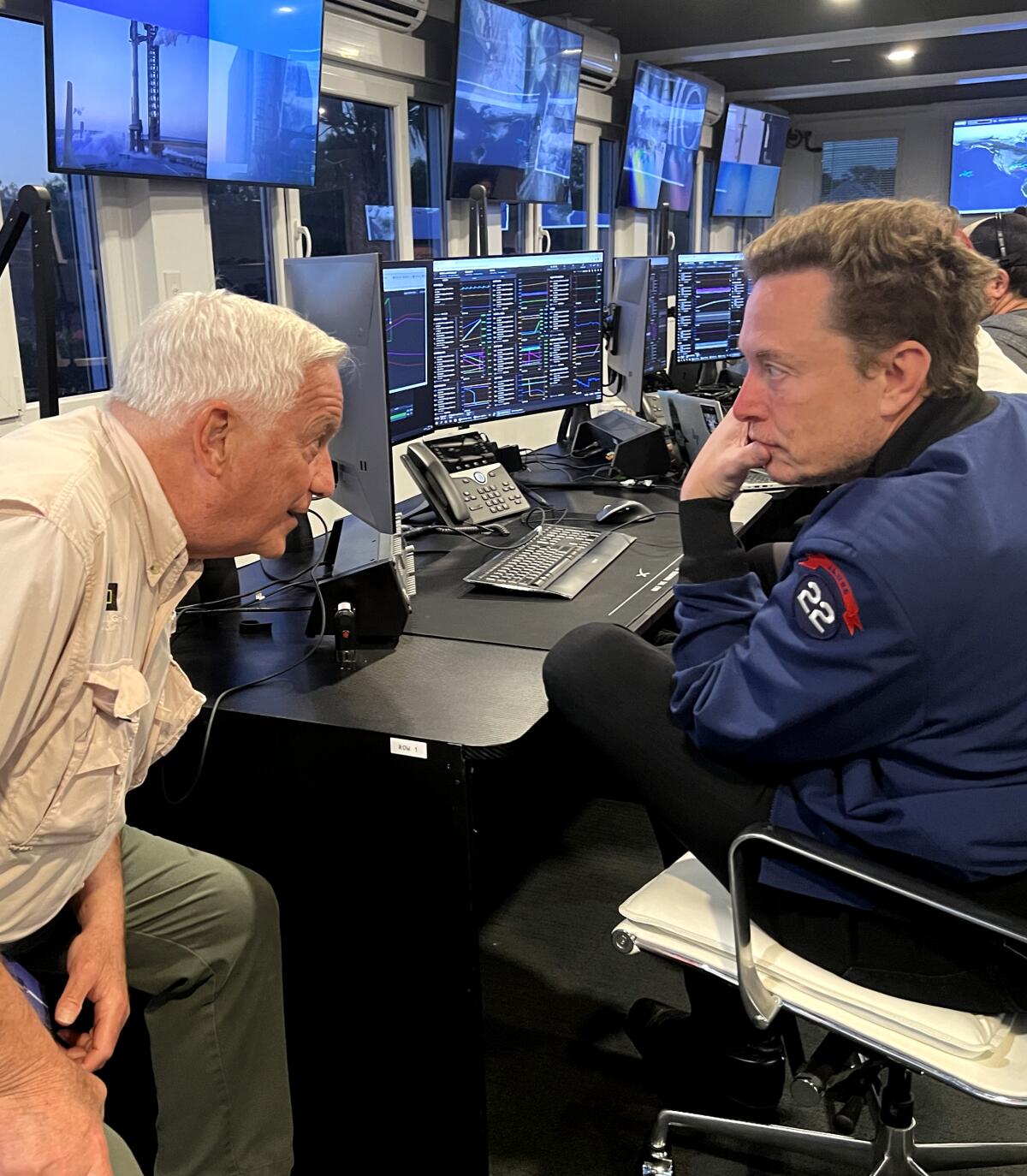
Simon & Schuster and Walter Isaacson mastered the controlled chaos required to land a book with a splash.
- Share via
Good morning, and welcome to the L.A. Times Book Club newsletter.
I’m Boris Kachka, the books editor at the Los Angeles Times. I have lots to share this week, but first, join me in the Elon Musk rabbit hole.
The media rollout of a news-breaking biography always involves balancing control with chaos — news leaks; factual disputes; review embargoes honored in the breach. One measure of success is the ratio of control to chaos; another, more important one is book sales. On both counts, Walter Isaacson’s biography of tech mega-billionaire Elon Musk seems to be working. The publisher, Simon & Schuster, declined to share sales numbers, but the book shot up to No. 1 on Amazon the day before its release on Tuesday and was still there on Friday. (See the Times’ complete coverage here.)
“Elon Musk” was delivered with a level of savvy reflective of its author, a former media CEO, and S&S, the house of Stephen King and Bob Woodward. The forces arrayed against them: Isaacson had to write up to the last minute, and his subject is a known agent of chaos.
Sign up for our Book Club newsletter
Get the latest news, events and more from the Los Angeles Times Book Club, and help us get L.A. reading and talking.
You may occasionally receive promotional content from the Los Angeles Times.
The book was strictly locked down — only a few early copies sent out on the condition that reviews did not go up before Tuesday. Until last weekend, the only source of leaks was an assembly line of adapted excerpts — 8 of them, which may be a record. The Wall Street Journal fired the starting gun before Labor Day with the inside story of Musk’s Twitter takeover. Then came last week’s barrage: Time, Isaacson’s alma mater, on artificial intelligence; the Washington Post on Starlink’s (non)intervention in Ukraine; the Los Angeles Times on Musk’s political red-pill moment; Axios (!) with a bulleted-list adaptation on self-driving cars; CNBC on more self-driving cars; CNBC again on Musk’s tussles with Bill Gates; CBS News on his traumatic South Africa childhood.
It was the Washington Post excerpt that unleashed the first stirrings of chaos. Isaacson wrote that Musk had cut off Ukraine’s access to his Starlink satellite system just as the country’s weaponized drones were set to attack Russian ships in occupied Crimea. Musk believed it might lead to World War III. In the ensuing furor over his alleged betrayal of an American ally, Musk posted on X (the ex-Twitter) that in fact he’d merely refused to turn Starlink on. (Suddenly, the trolley problem was playing out in real time.) Isaacson posted to back up Musk’s version, thus contradicting his book. The Post ran a hefty correction.
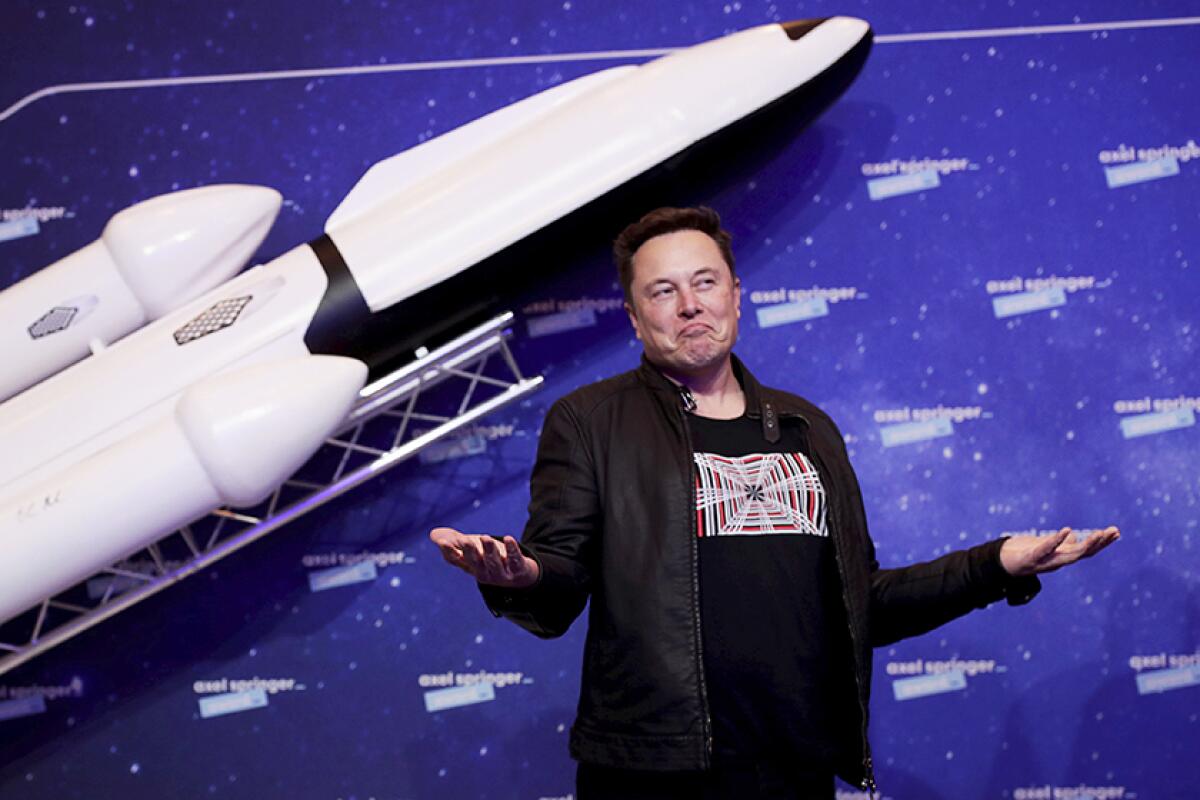
And then the embargo broke. The New York Times obtained a copy from a bookstore (meaning it didn’t have to honor any agreements) and went live with a review Saturday. With the seal broken, the Post soon followed. But it wasn’t (if I may say so) until Brian Merchant’s unsparing Monday review in the L.A. Times that full-bore skepticism of Isaacson’s “great man” approach to his subject entered the chat. (Matt Pearce also provided a gimlet-eyed primer.) Historian Jill Lepore’s New Yorker review reminded us of the apartheid roots of Musk’s family and quoted Stephen Colbert from a Musk guest spot: “Superhero or supervillain: You have to choose one.” And don’t sleep on novelist Gary Shteyngart’s take in the Guardian: “I drove my espresso machine hard into the night to survive both craft and subject matter.”
Finally came the Isaacson profiles: A long one from New York Magazine plumbing his Establishment past; a brisk L.A. Times piece by former staff writer Margot Roosevelt on the challenges of dealing with “manic moods and 3 a.m. texts” while reporting at breakneck speed; and many more still. In one (mostly) coordinated week-long burst, all the press — positive, negative or indifferent — had combined to make “Elon Musk” the first most talked-about book of the fall.
Next Book Club: You guessed it. Musk.
Isaacson isn’t through by a long shot. Join the Times Book Club on Oct. 1, when the author comes to El Segundo for his only L.A. event to discuss “Elon Musk” with Times columnist Anita Chabria. As you read along with us, please share questions for Isaacson, like “Superhero or supervillain?,” in Eventbrite or send an email to bookclub@latimes.com.
The week in books that are not about Elon Musk
The end of the fake rabbi. Jim Ruland’s profile of Tod Goldberg marks the conclusion of the author’s Gangsterland series, a darkly humorous trilogy of desert noirs tracking Las Vegas Rabbi David Cohen, formerly known as hit man Sal Cupertino. Ruland covers every aspect of Goldberg’s persona — spiritual seeker, UC Riverside writing guru and scourge of Inland Empire politicians.
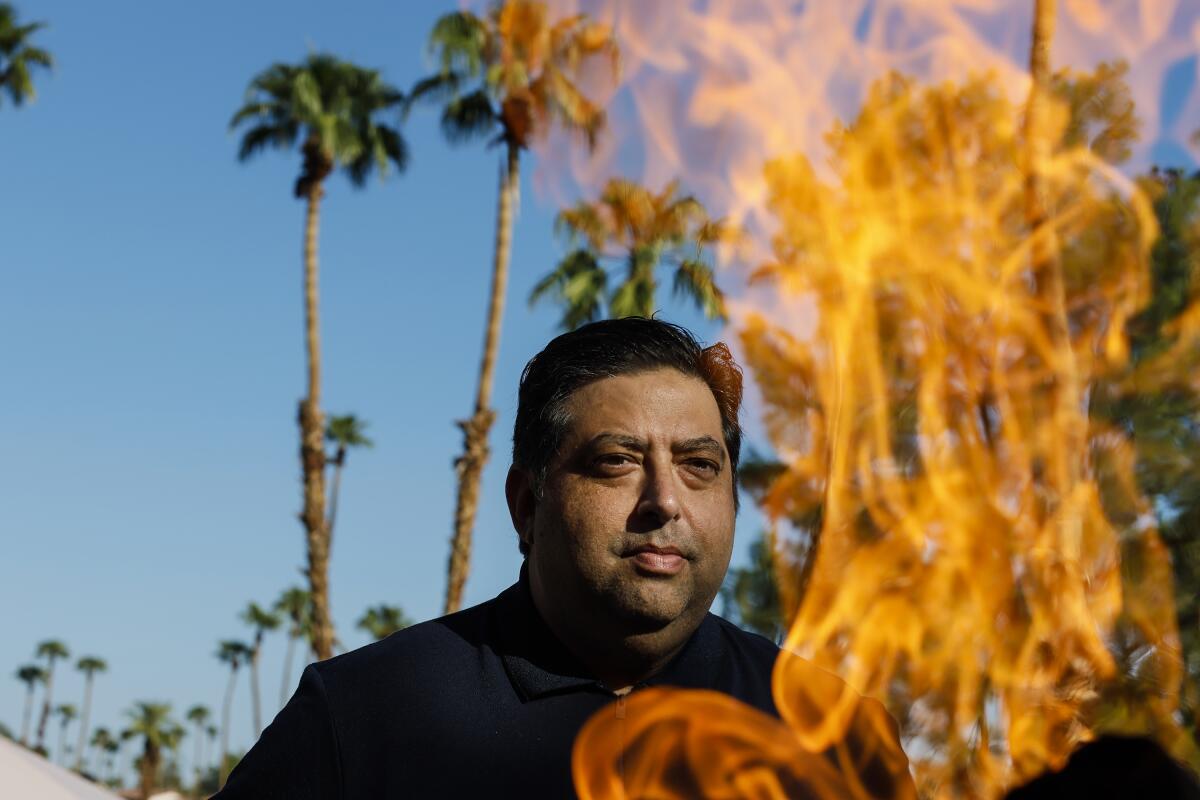
Accounting for the Duggars. Times staff writer Meredith Blake breaks down the numbers in reality-TV apostate Jill Duggar’s new book “Counting the Cost,” about the nefarious underpinnings of the television empire built by her parents, Jim Bob and Michelle Duggar.
“The Other Black Girl” is ready for her closeup. In another Meredith Blake joint, Zakiya Dalila Harris talks through how her breakthrough novel, “The Other Black Girl” — “aptly described as ‘The Devil Wears Prada’ meets ‘Get Out’” — went from a story dreamed up out of a surreal moment as a junior employee at the book publisher Knopf Doubleday to a Hulu series.
Whither the #girlboss? Marisa Meltzer, a leading journalist of feminist culture, has written a business story that tracks an important trend in fashion, self-care and tech — the girlboss era — through a singular lens in “Glossy: Ambition, Beauty, and the Inside Story of Emily Weiss’s Glossier.” She talks to Times contributor Jessica Ferri about both the sexist burdens and the blindspots of female CEOs.
And what’s next for Branagh’s Poirot? Times culture columnist Mary McNamara and film critic Justin Chang go deep — really deep — on Agatha Christie in a conversation occasioned by Kenneth Branagh’s third film adaptation of a Hercule Poirot series book, “A Haunting in Venice.”
Kate Atkinson faces the apocalypse. Beloved for her Jackson Brodie mysteries and her literary-speculative crossover “Life After Life,” the British author knows no rules. She talks to Bethanne Patrick about her fittingly titled new book of linked stories, “Normal Rules Don’t Apply,” in which a force called the Void threatens to kill us all.
Awards season pre-game
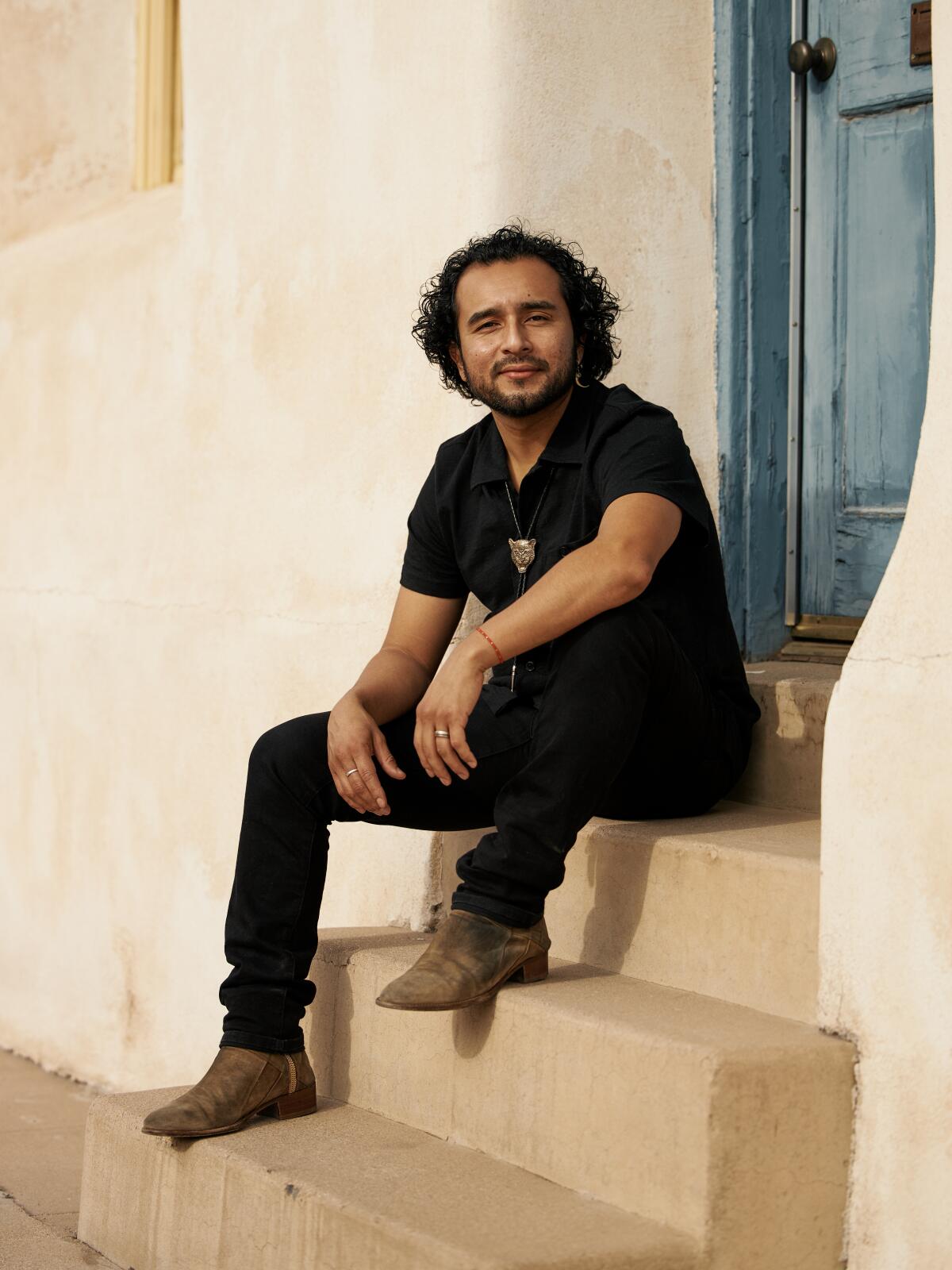
Book awards are around the corner, as you can tell from a trickle of longlist announcements and a few big changes making the news. The National Book Foundation announced Tuesday that it had rescinded its invitation for Drew Barrymore to host its annual National Book Awards ceremony in mid-November, citing her decision to bring her talk show back on air during the WGA strike. And more significantly, the artistic Pulitzer Prizes will now be open to U.S. noncitizens, including those without official documents — surely at least partly in response to a poignant essay in the Times from memoirist Javier Zamora.
On to the nominees! Last week the National Book Foundation announced that Paul Yamazaki, longtime book buyer for City Lights, was slated to receive its lifetime-achievement Literarian Award. See the Times’ wonderful profile from fellow San Franciscan John McMurtrie.
And this week, the foundation rolled out its longlists — 10 in each category. Among the semifinalists are novelists Nana Kwame Adjei-Brenyah, Jayne Anne Phillips and Justin Torres; poets José Olivarez and Monica Yoon; and nonfiction writers Jonathan Eig (for “King: A Life”) and Viet Thanh Nguyen (also a Pulitzer-winning novelist and USC professor). In the category of translated literature, French Senegalese novelist David Diop was a shoo-in. Here’s this week’s Times Q&A on the U.S. release of the nominated novel, his second, “Beyond the Door of No Return.”
Talks around town
Rising to the challenge of climate change. On the heels of the Times’ rich, ambitious special report, “Our climate change challenge,” reporters Rosanna Xia and Sammy Roth wil livestream a conversation on Sept. 19, where they’ll also discuss Xia’s new book, “California Against the Sea: Visions for Our Vanishing Coastline.” Get your event ticket here and buy the book from partner bookseller Skylight here.
Mona Awad’s seductive feminist horror novel “Bunny” earned raves in 2019. Her fourth book, “Rouge,” is generating even more buzz — a SoCal-set mashup of “Snow White” and “Eyes Wide Shut” that shoots daggers at the beauty industry. She’ll read and speak with local author Sarah Shun-lien Bynum at Skylight Books on Sept. 19.
Speaking of feminist Goth mashups, Anna Biller launches her new novel, “Bluebeard’s Castle,” an adaptation of the French fairy tale, at Stories Books on Sept. 19 with author Tosh Berman.
He’s still standing. Bernie Taupin, the lyricist behind every Elton John song you’ve lit a candle to, meets with Cameron Crowe to talk up his memoir, “Scattershot: Life, Music, Elton, and Me,” at a Live Talks Los Angeles event at the Aratani Theatre Sept. 19.
Bookstore faves: North Figueroa Bookshop
Every couple of weeks, we’ll ask an L.A. bookseller what they’re selling and what they’re loving. This time: Madeline Gobbo, illustrator and store manager of the North Figueora Bookshop in Highland Park.
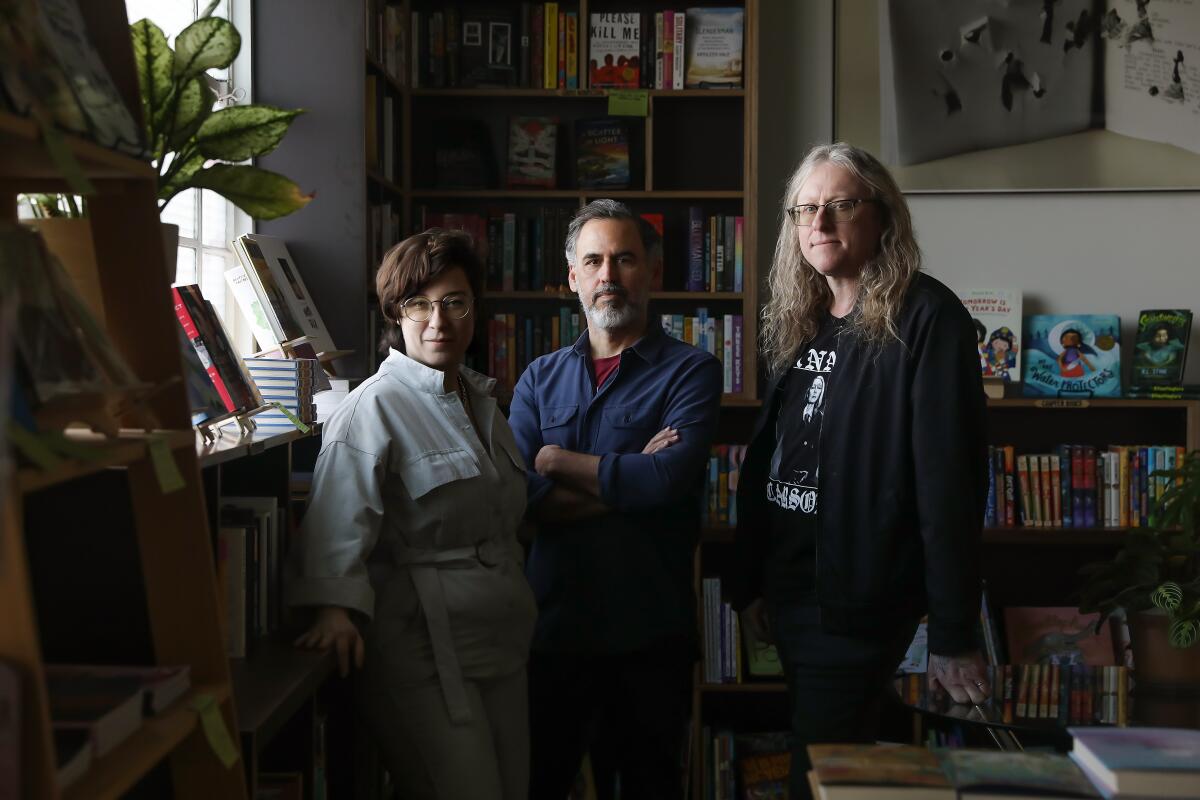
What’s flying off your shelves?
Anthony Christian Ocampo just celebrated the paperback release of his excellent book “Brown and Gay in L.A.” with us. Sarah J. Maas’s “A Court of Thorns and Roses” series is our events coordinator Addie’s current obsession — I’ve seen her handsell it in under a minute. David Grann’s “Killers of the Flower Moon” has been popular with the industry crowd. And we’ve had a surprising response to our growing occult and esoterica section. We have quite a few devotees of the arcane arts in the neighborhood.
What are your customers asking for?
We get a lot of requests for “Fourth Wing” by Rebecca Yarros, along with “Demon Copperhead” by Barbara Kingsolver, “Creep” by Myriam Gurba, and “I Want to Be a Vase” by Julio Torres. “Pedro Paramo” by Juan Rulfo has been a sleeper hit for us, and genre fans continue to fall under the thrall of the gloriously gory “Manhunt” by Gretchen Felker-Martin — it’s our book club pick for October. Thanks to a customer’s request for MariNaomi’s “I Thought You Loved Me,” I have fallen in love with Fieldmouse Press, an amazing nonprofit comics publisher out of Grass Valley, Calif. We learn so much from our customers!
What are you recommending and why?
I’m excited to sit down with Jillian and Mariko Tamaki’s graphic novel “Roaming.” I adore Jillian’s linework, and Mariko excels at capturing the lived-in secret languages of close friends. Their collaborative work is beautifully immersive. I could live in the Tamaki-verse forever.
What are you looking forward to that isn’t out yet?
“Dead in Long Beach, California” by Venita Blackburn. Her short story collection “How to Wrestle a Girl” knocked the wind out of me. Her debut novel is a twisty, existential thriller, much like one of my all-time favorite beach crime novels — “Breaking and Entering” by Joy Williams.
Sign up for our Book Club newsletter
Get the latest news, events and more from the Los Angeles Times Book Club, and help us get L.A. reading and talking.
You may occasionally receive promotional content from the Los Angeles Times.




